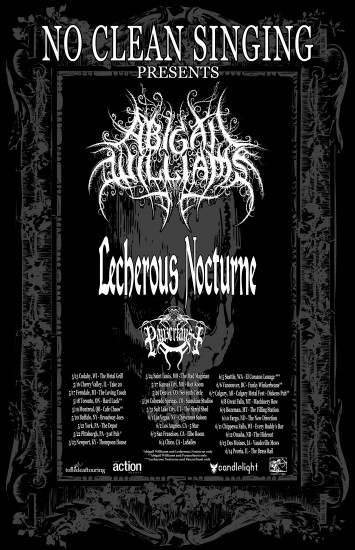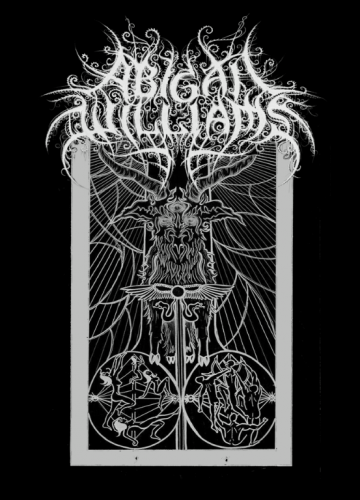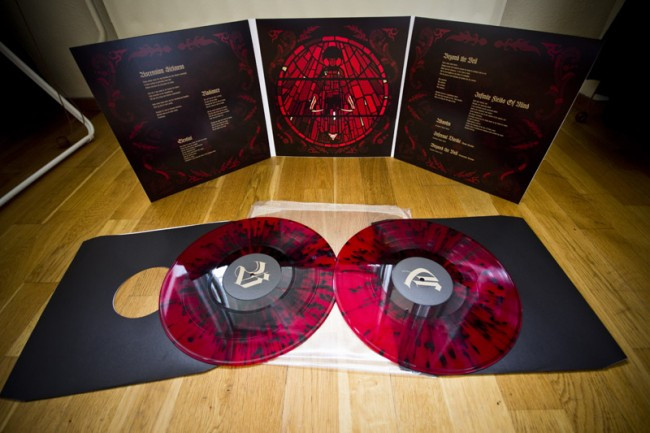Ever-evolving black metal purveyors Abigail Williams have announced new North American tour dates for May-June, and NO CLEAN SINGING is proud to sponsor this special run of new performances. Joining AW for this rampage will be two extreme black/death bands, Willowtip recording artists Lecherous Nocturne from South Carolina and Toronto-based Panzerfaust.
Long-time readers of our site will be quite familiar with Abigail Williams and Lecherous Nocturne because we’ve written about them repeatedly, and both bands put on killer live shows. Panzerfaust may be a new name around these parts, but they’re a band whose music is also well worth getting to know.
The tour is scheduled to begin on May 15 in Wisconsin and to conclude on June 14 in Illinois. Abigail Williams’ main man Sorceron told us he’s excited to be hitting the road again with the band’s long-time brothers in Lecherous Nocturne, “and getting out there to show people some new songs.” Continue reading »











